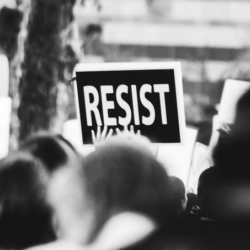
Factors to Consider If You Want to Hold a Legal Protest
Protesting is a fundamental right protected by many democratic societies, allowing individuals and groups to express their views and advocate for change. However, organizing a legal protest requires careful consideration of various factors to ensure a safe and lawful demonstration. In this article, we will explore essential factors to consider if you want to hold a legal protest, empowering activists to exercise their rights responsibly and effectively.
Understand Your Rights
Before planning a protest, familiarize yourself with the laws and regulations governing protests in your region or country. Understand the rights and limitations concerning freedom of speech, assembly, and public demonstrations. Knowing your rights will enable you to exercise them lawfully and respond effectively if faced with any challenges.
Obtain Necessary Permits
In many places, obtaining permits is a legal requirement for protesting in public spaces. Contact local authorities, such as city councils or police departments, to inquire about the permit application process and any specific guidelines. Applying for permits well in advance will allow ample time for approval and necessary coordination.
Choose a Suitable Location
Select a protest location that aligns with your objectives and is appropriate for the expected number of participants. Public parks, plazas, or designated free speech areas are often suitable for peaceful protests. Avoid disrupting essential services, private properties, or sensitive areas to maintain a positive and lawful demonstration.

Notify Law Enforcement
Inform local law enforcement about your intention to hold a protest. Providing them with relevant details, such as the date, time, and location, promotes transparency and cooperation. Law enforcement agencies may also offer guidance on ensuring public safety during the protest.
Develop a Clear and Peaceful Message
Have a clear and focused message for your protest and the specific goals you wish to achieve. Communicate your message effectively through signs, banners, and chants. Emphasize the importance of a peaceful and non-violent demonstration to maintain credibility and garner public support.
Organize Crowd Safety Measures
Prioritize the safety of protesters and the public during the event. Assign trained marshals to help manage the crowd, maintain order, and handle potential issues. Develop a communication plan to inform participants about any changes or safety concerns.
Respect Private Property and Public Order
Respect the rights of private property owners and abide by local laws concerning public order. Avoid trespassing, vandalism, or any actions leading to disturbances or arrests. Respecting public spaces and private property reinforces the legitimacy of your cause.
Engage With Media and Social Media
Engaging with the media and using social media platforms can amplify your message and reach a broader audience. Have designated spokespersons available to speak to the press, ensuring a clear and coherent representation of your protest’s objectives.
Holding a legal protest is essential to advocating for change and expressing your views on important issues. By approaching demonstrations responsibly and lawfully, activists can maximize the impact of their message and contribute to meaningful social change while promoting a safe and respectful public discourse.
